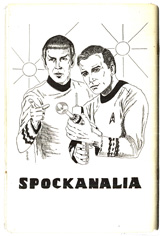This month, the Fictorians and a slew of guest authors are going to share their successes, failures, lessons learned, and insights to the writing journey that we’ve experienced this year. December is usually a time of reflection for everyone as the calendar winds down. Looking back on our year is often a measurement of how far we’ve come as writers and human beings. To that end, this month’s theme is “2016 in Review.”
Each of us will share memorable events from the last twelve months and maybe a few lessons learned. A lot can happen in a year, even one that passes as quickly as 2016 seems to have gone. For me, 2016 has been a watershed year and as it comes to a close, I’m a bit humbled by what’s happened and, if possible, more excited about my journey as a writer than I’ve ever been. A tremendous amount of wonderful things have happened this year for me, and yet as I write this I’m slogging through a work in progress that I don’t want to write, but must finish (damn you, Heinlein!). As a firm believer in perspective, especially at the end of the calendar year, I wanted to coordinate this month for my fellow Fictorians and get all of thinking about the good, the bad, and even the ugly from the last twelve months.
I’ve already talked about my ugly, but I’ll define it. I’m working on an alternate history novel that’s kicking me in the pants every day. I have a solid story, a great outline, and good characters, but I’m constantly chickening out of actually writing the damned thing. I’m 20,000 words in (90,000 projected) and it’s tough to just write. Granted, I’ve started a new job and been taking care of my spouse after a complicated food surgery (which involves the care, feeding, and parenting of two munchkins), but I’m way behind where I wanted to be on this book. And it’s due in February. Sigh. I’d feel terrible about this except that I know I can write fast, and especially write clean and fast. I think I’ll make my deadline, but I’ve got to settle a few other things in my head. Among all that stuff is dealing with the good things that have happened so I can celebrate but not rest on my laurels.
Before I retired from the Army, there was a wide-reaching movement for leaders to consider their “work/life balance.” If anything, mine’s way skewed to the work side right now and not unlike it was when I wrote the first drafts of SLEEPER PROTOCOL in 2012-2013. I was still able to write then, and I can now, it just takes a little self-discipline and determination. When I need that extra motivation, all I have to do is turn my head to the right and a shelf over my desk. This year is framed beautifully by that image and it’s been the kind of year we dream of having.
SLEEPER PROTOCOL was published in January, was reviewed by Publisher’s Weekly, and has sold way more copies than I would have imagined. Just a week later, another publisher released my military science fiction novel RUNS IN THE FAMILY. That book also sold incredibly well, but the small press who published it shuttered just last week. I have a couple of options working right now to get it back into publication (though the audiobook is still available!). I also had short fiction published in several different venues including the DRAGON WRITERS anthology alongside Brandon Sanderson, Jody Lynn Nye, Todd McCaffrey, and David Farland to name a few. I qualified as an Active Member in the Science Fiction Writers of America. The sequel to SLEEPER PROTOCOL is in the final stages of content editing right now. It’s been an incredible year, but I’ll share my own personal highlight at the end of the month.
The stories you’ll see this month will highlight the good, the bad, and the ugly. This is what we writers deal with on a daily basis. Sometimes our efforts culminate in great years, and others not so much. The key is perseverance and determination – we’re sharing our successes and challenges in the hopes they’ll help you and each other out. I hope this month’s posts do exactly that for all of us.

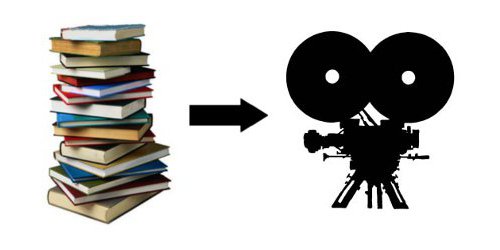 Leveraging your IP into a film or miniseries adaptation is one of the best ways to make money as a writer. Not only can you get the income from licensing your rights, but having a major motion picture or miniseries made will give your works access to a much larger audience. The phrase “based on a bestselling series” is good for both sides of the business. It attracts attention to the movie, but it will also give a healthy boost to your book sales leading up to the release.
Leveraging your IP into a film or miniseries adaptation is one of the best ways to make money as a writer. Not only can you get the income from licensing your rights, but having a major motion picture or miniseries made will give your works access to a much larger audience. The phrase “based on a bestselling series” is good for both sides of the business. It attracts attention to the movie, but it will also give a healthy boost to your book sales leading up to the release.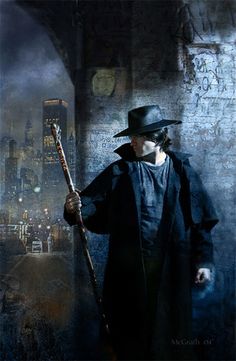 However, film has significant advantages in its ability to employ complex visual elements. As authors, we rely on the power of our language to inspire our audience’s imaginations. Film, on the other hand, relies on the skill of the special effects, costuming, and set design teams as well as the training of the actors. When you write a book, be sure to feed those teams with strong, iconic visuals. Furthermore, a five second panning shot can show the thousands of tiny details that would take an author five pages to describe. You get the same effect without having to worry about slowing down pacing.
However, film has significant advantages in its ability to employ complex visual elements. As authors, we rely on the power of our language to inspire our audience’s imaginations. Film, on the other hand, relies on the skill of the special effects, costuming, and set design teams as well as the training of the actors. When you write a book, be sure to feed those teams with strong, iconic visuals. Furthermore, a five second panning shot can show the thousands of tiny details that would take an author five pages to describe. You get the same effect without having to worry about slowing down pacing.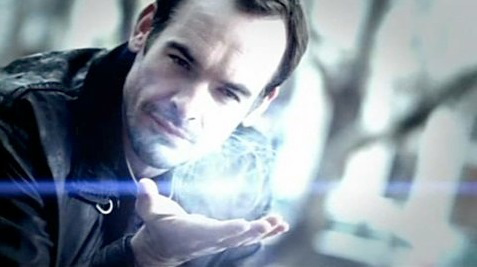 Though many of Dresden’s spells were fantastic, they were also remarkably low budget. Making the pentacle necklace glow? Not hard. Blasts of fire would take more skill, but can be done in a number of film editing softwares. As can Bob’s glowing campfire sparks.
Though many of Dresden’s spells were fantastic, they were also remarkably low budget. Making the pentacle necklace glow? Not hard. Blasts of fire would take more skill, but can be done in a number of film editing softwares. As can Bob’s glowing campfire sparks.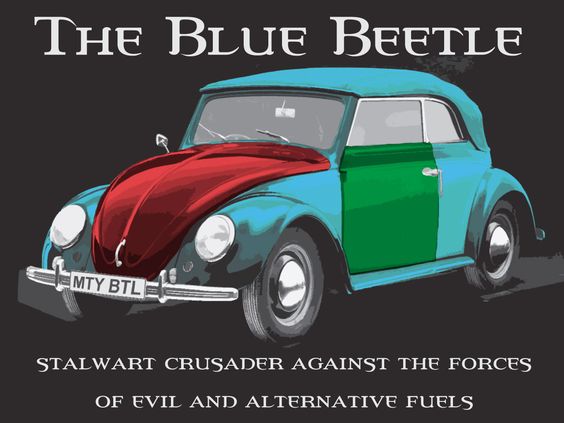 For example, the directors of the Dresden Files TV series chose to eliminate the beloved Blue Beetle in favor of a Vietnam era jeep. While the Blue Beetle provided good comic relief in the books, it would have been an extremely difficult set piece to shoot. The director’s camera angles would have been severely limited by how small and enclosed the vehicle was. The only way to get around this problem would be to have multiple Beetles – the first for exterior shots, and a second that was partially disassembled accommodate to the cameras for the interior shots.
For example, the directors of the Dresden Files TV series chose to eliminate the beloved Blue Beetle in favor of a Vietnam era jeep. While the Blue Beetle provided good comic relief in the books, it would have been an extremely difficult set piece to shoot. The director’s camera angles would have been severely limited by how small and enclosed the vehicle was. The only way to get around this problem would be to have multiple Beetles – the first for exterior shots, and a second that was partially disassembled accommodate to the cameras for the interior shots.